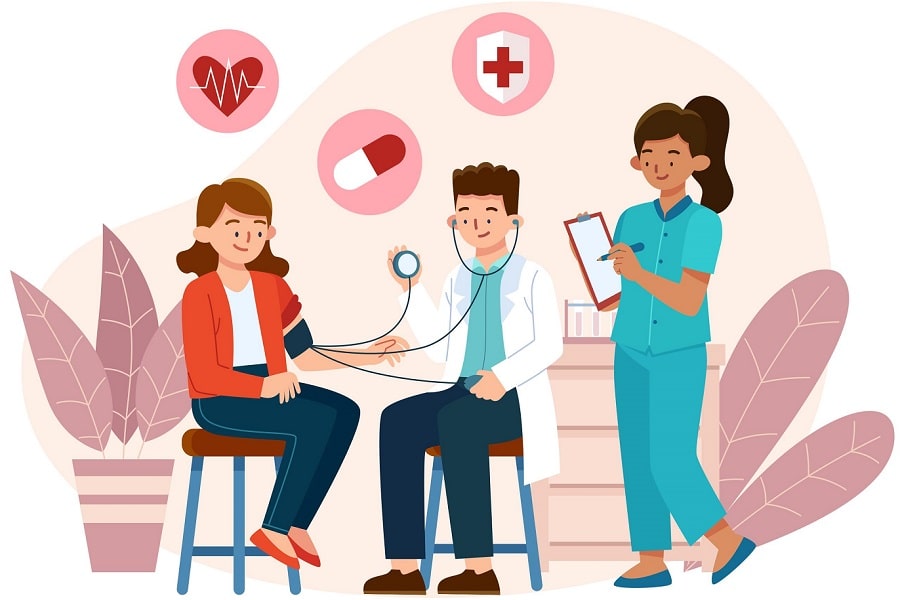A colonoscopy is a method that allows a gastroenterologist to look over the entire length of the colon for any polyps or lesions. It can also identify abnormalities. The patient is sedated throughout the procedure.
By using an instrument called a colonoscope (a flexible tube fitted with tiny cameras), doctors can detect abnormalities and take them out for biopsy and diagnosis.
Colonoscopy is the method of choice for screening for colon cancer since colon cancer can be identified and eliminated in this process. Other screening methods can also detect cancerous cells. However, a favorable outcome indicates that a repeat colonoscopy is required.
Benefits of Probiotics Following a Colonoscopy
 A good colonoscopy is the sole screening method to detect and avoid colon cancer. In a colonoscopy procedure, your doctor will identify and eliminate polyps (adenomas) before they can develop into cancer.
A good colonoscopy is the sole screening method to detect and avoid colon cancer. In a colonoscopy procedure, your doctor will identify and eliminate polyps (adenomas) before they can develop into cancer.
People at moderate risk of colon cancer are likely to require a colonoscopy only once every ten years. Therefore, it is essential to investigate the gastroenterologist’s skills.
Think about these three things when searching for a specialist for your colonoscopy. Don’t be afraid to ask for the information.
Benefits of a colonoscopy
A colonoscopy might not be the first option you think of when deciding the best way to spend your time, But have you thought about how useful it can be for diagnosing digestive problems and diseases?
Emptying your bowels while enabling your doctor to examine your entire colon with the help of a bright colonoscopy as well as a monitor for viewing it will give you an exact “picture” of overall health! Take a look at these seven advantages that come with a colonoscopy.
Colonoscopies help detect colon cancer. One in 20 Americans will be diagnosed with colon cancer. Colonoscopies provide the best way for prevention, diagnosis, and treatment. Colon cancer screening can be as comprehensive.
Polyps are removed through the procedure of a colonoscopy. Most colon cancers arise from polyps, which are fleshy tumors that appear benign initially but can be cancerous if they continue to develop.
The doctor will remove suspicious polyps through a colonoscopy procedure to ensure they never develop into cancer.
Colonoscopies can diagnose colitis. It is chronic colonic inflammation. If your doctor has detected inflammation in specific areas of your colon, you should start receiving treatment immediately.
Diverticulitis and Diverticulosis can be identified by colonoscopy. The intestinal wall is a pocket susceptible to infection over time, leading to discomfort and pain. Your physician can determine any condition’s severity and recommend an appropriate course of treatment.
Colonoscopies can reveal bleeding lesions. Lesions that are bleeding can be found throughout the colon. The colonoscopy examinates all the colon’s rectum up to the cecum. This way, your doctor can identify the lesions in the examination.
Colonoscopies are utilized to detect abnormal barium x-ray examinations. If you’ve had an x-ray barium scan and a suspected area is seen, it is recommended to have a colonoscopy for an improved image of the area affected by the colon.
Colonoscopies are the most practical exam to identify the source of abdominal discomfort. The symptoms of anemia and abdominal pain, weight loss, or cramping may result from various causes. A colonoscopy will determine if the symptoms you’re experiencing are due to colon diseases.
Benefits of Probiotics After a colonoscopy
The bowel cleanses aim to flush your intestines, allowing your gastroenterologist to have an accurate picture of the lining of your colon. The colonoscopy will reveal precancerous lesions and polyps that can be treated.
If they continue to develop, benign polyps could develop cancerously and expand into other body parts. It is, therefore, essential to be prepared thoroughly.
There are many benefits of an effective colon cleanse. Eliminating the harmful and toxic bacteria found in the colon’s home is an excellent result. But there are a few disadvantages of a colon that is empty also. The intestines in our bodies are filled with millions of beneficial bacteria, also known as gut flora.
These naturally neutralize toxins, discourage bad yeast, promote digestion, and boost the immune system. A colon is a place where you can eliminate healthy and unhealthy microbes.
Therefore, you might take probiotics following the procedure of a colonoscopy. Probiotics can aid in rebuilding a colony of beneficial gut bacteria to restore the equilibrium of your digestive system. (Source Livestrong).
Here are some actions you can take to slowly and naturally restore your gut flora with probiotics:
- Drink kefir and yogurt high in probiotics for several days following colonoscopy. Check the label to ensure the number of billions of living cultures is included.
- Consume a probiotic in the morning with an empty stomach. Discuss with your doctor before selecting a probiotic and provide the best advice.
- Eat a diet rich in prebiotics. These foods, like fruits and vegetables, oats, and whole grains, are high in fiber and provide feed for probiotic bacteria.
- Avoid processed foods, wheat products, sugar, hydrogenated fats, sugar alcohol, and high fructose corn syrup for a few days following colonoscopy.
These foods can promote the development of harmful microorganisms within the body, which compete with healthy gut colon flora.









